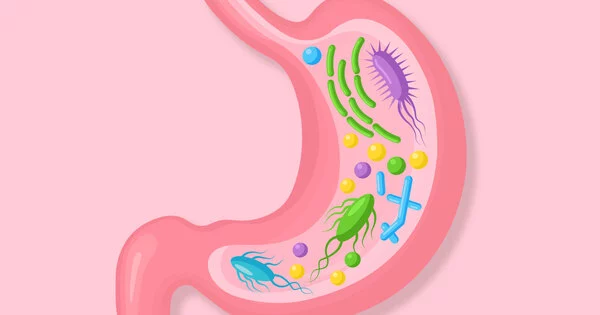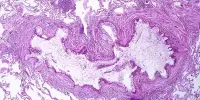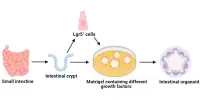Fiber has long been recognized as an important component of a healthy diet, and recent research has shed new light on its role in promoting gut health. Fiber refers to the parts of plants that are not digestible by human enzymes but instead are fermented by gut bacteria in the large intestine. These fermentation products, such as short-chain fatty acids, provide numerous health benefits, including reducing inflammation, regulating the immune system, and promoting the growth of beneficial gut bacteria.
Changing the structure of a dietary fibre found in a variety of food products has been found to promote healthy gut bacteria and reduce gas formation, a discovery that could benefit people with fiber intolerances and irritable bowel syndrome.
A team of researchers from the University of Nottingham, Quadram Institute Biosciences, and the University of East Anglia investigated psyllium, a type of natural dietary fibre found in a variety of foods such as cereals and yogurt. They discovered that the physical state of the fiber has a significant impact on gas production, which is frequently associated with bowel discomfort. The findings were published in the journal Food Hydrocolloids.
These findings show that there are new opportunities for designing targeted structures using psyllium, either through seed processing or selective breeding, to achieve new fibre materials with clear clinical benefit above that of unrefined psyllium powders aiding in the treatment of gastrointestinal discomfort.
Professor Yakubov
The team performed in vitro fermentation experiments seeded with human stool. They conducted an analysis of fermentation products and evaluated the impact of different structures on the broad categories of microorganisms.
Dr. Gleb Yakubov, Associate Professor in Food Physics at the University of Nottingham, was one of the study’s lead researchers “Although fibre is an important part of any diet, it can cause bowel discomfort in many people, and it can be a trigger for people with IBS or IBD. This is because certain foods cause bacterial interactions in the gut, which result in gas, which can cause pain or discomfort. According to our findings, the physical state of the fiber has a significant impact on gas production by producing beneficial compounds that promote the growth of good bacteria in the gut.”

Psyllium fiber is derived from the seeds of Plantago ovata plants, also known as blond plantain. These seeds produce a jelly-like material called mucilage, which comes in a variety of shapes and forms and contains polysaccharides, which are long-chain sugars. These polysaccharides promote the production of beneficial short-chain fatty acids, which benefit gut health and systemic metabolism. This study demonstrates that different physical states of fiber influence how dietary fibre breaks down and that microbes ‘colonize fibre’ during fermentation.
“These findings show that there are new opportunities for designing targeted structures using psyllium, either through seed processing or selective breeding, to achieve new fibre materials with clear clinical benefit above that of unrefined psyllium powders aiding in the treatment of gastrointestinal discomfort,” Professor Yakubov continues.
Research is already underway at the University of Nottingham’s School of Medicine to use this new knowledge to develop and test psyllium-mimicking materials as medical nutrition that could provide a source of fibre for people with certain bowel conditions, with trials set to begin in the spring.
Other research has focused on the importance of diversity in the types of fiber consumed. Different types of fiber feed different types of gut bacteria, and a diverse diet that includes a variety of fibers from different plant sources can promote a more diverse and healthy gut microbiome. This, in turn, has been linked to a range of health benefits, including reduced risk of obesity, type 2 diabetes, and other chronic diseases.
Overall, these discoveries highlight the importance of including a variety of fiber-rich foods in the diet to promote gut health and overall well-being.
















